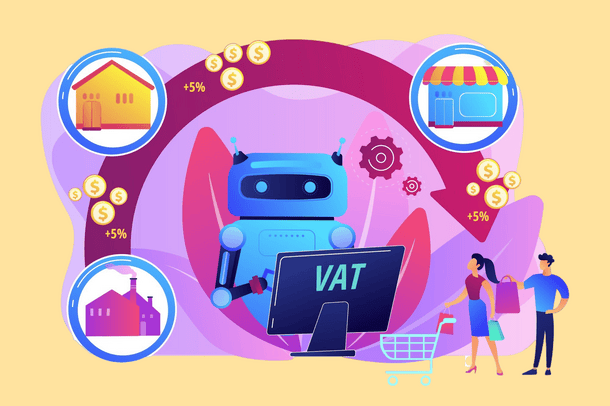

For any e-commerce business, converting visitors into customers is crucial for its success. And what better way could be than using AI.
By leveraging AI, WooCommerce sites can create unique shopping experiences, optimize pricing strategies, and provide instant chatbot customer support. All of these contribute to higher conversion rates.
Today we will explore the various ways AI can be integrated into your WooCommerce site to boost conversions. So let’s begin!
1. Understanding Conversion Rates
The conversion rate represents the percentage of visitors to your website who complete an action, such as making a purchase or signing up for a newsletter. In WooCommerce, this desired action is typically making a purchase. It’s essential to differentiate conversion rate from traffic. You can have high website traffic, but if your conversion rate is low, it means visitors aren’t taking the desired action.

Why conversion rate is important you ask? When you track conversion rates, it reveals how well your website turns visitors into customers. It also helps you find the issues and fix them. Such as change in designs and layouts could improve sales.
If visitors abandon their shopping carts before completing a purchase, analyzing conversion rates can help pinpoint issues. Addressing these can enhance the overall user experience.
Thus, by monitoring conversion rates, you can adjust marketing strategies based on the effectiveness of different sources like social media. Optimize where it matters most.
2. The Role of AI in E-Commerce
Artificial Intelligence is basically the simulation of human intelligence into machines. AI learns from data, recognizes patterns, and makes decisions that typically require human cognition. In e-commerce, AI enhances efficiency, personalization, and customer experience.
Applications of AI in E-Commerce-
- Personalization: AI analyzes user behavior, preferences, and purchase history to recommend relevant products. Personalized product suggestions increase conversion rates.
- Chatbots: AI-powered chatbots take care of customer inquiries. They provide support to the customer in real time and assist with order tracking.
- Inventory Management: AI predicts demand, optimizes inventory levels, and prevents stockouts.
- Dynamic Pricing: Artificial Intelligence can adjust your product prices based on market conditions. It considers competitor prices and customer behavior.
- Fraud Detection: AI algorithms identify suspicious transactions and prevent fraudulent activities.
- Recommendation Engines: AI algorithms suggest complementary products during checkout.
- Supply Chain Optimization: Using logistics, AI can reduce delivery times and costs.
Integrating AI into WooCommerce:
- Product Recommendations: Use AI plugins to display personalized product recommendations on product pages and in emails.
- Chatbots: Chatbots can be used for instant chatbot customer support, order tracking, and FAQs.
- Predictive Analytics: You can use AI to forecast demand, optimize inventory, and enhance supply chain management.
- A/B Testing: AI tools can automate A/B testing for website elements to improve conversion rates.
- Dynamic Pricing Plugins: Integrate AI-driven pricing solutions to adjust prices dynamically.
3. Personalized Shopping Experiences
Personalized shopping experiences are essential for engaging customers and driving conversions.
Personalized content tailors brand messaging to create unique, targeted experiences based on specific customer data. In response to audience expectations, marketers use data to craft content directly suited to individual customers.

Beyond simply using a customer’s first name in an email subject line, personalized content now includes more sophisticated strategies across various channels. These include customizing website landing pages with relevant product recommendations, crafting attention-grabbing email subject lines, curating personalized social media feeds, showing retargeting ads based on user’s browsing history, tailoring in-app experiences to individual preferences, delivering context-specific content through location-based personalization, sending personalized SMS messages, and engaging users with timely push notifications.
The benefits of personalization include a better understanding of customers, improved user experiences, higher customer engagement, and increased average order value and revenue, often driven by AI-powered product recommendations.
AI analyzes customer behavior, preferences, and historical interactions. It suggests relevant products based on patterns, increasing engagement and loyalty.
4. Chatbot Customer Support
An AI chatbot simulates human speech. It allows natural and conversational interactions with users. These chatbots play a crucial role in chatbot customer support automation.
Customer service chatbots operate round-the-clock. And provide immediate assistance without human intervention. They handle inquiries, address complaints, and offer information on frequently asked questions and products.
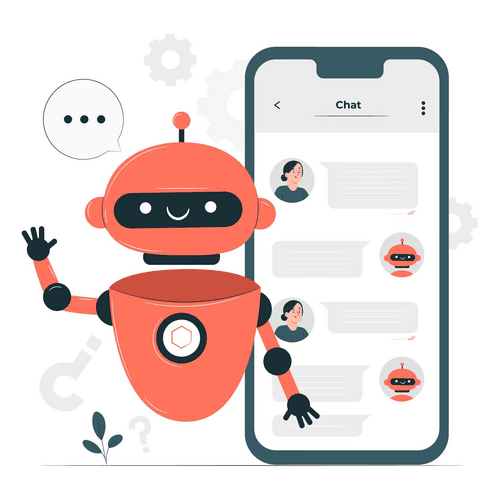
This availability enhances user experience and encourages conversions.
Setting up these chatbots for customer support could be trickier. Thus I recommend you to seek assistance from WooCommerce development services.
Like we talked about before, AI helps manage inventory in real time. This prevents stockouts and ensures products are available when customers want to buy. Also, using chatbots can reduce your support cost by up to 30%. They can also raise revenue by 7-25%.
5. Predictive Analytics
One of the best features of implementing AI is its trend forecasting. It predicts future trends. It does this based on past data. The AI does this using machine learning algorithms. It’s cool, right?
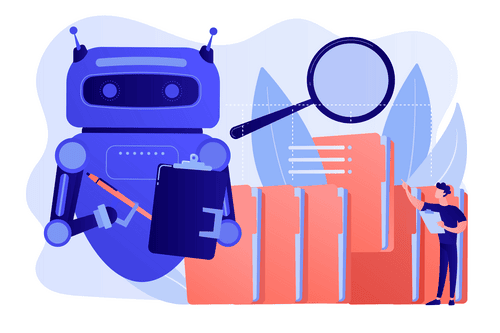
To predict any future trend it first analyzes the data. Where this data can be anything from text to images. Once the algorithm is active, your AI will accurately predict the trend.
So, Algorithms are crucial here. They are like the brains of your AI. Once the models are trained, they apply learned patterns to new data and predict future outcomes.
Some of the examples could be forecasting future cash flow for business health. In manufacturing, AI would prevent equipment malfunction by analyzing historical data. In Healthcare it would quickly detect the allergic reactions of the users through their patient data.
Struggling with AI integration for your WooCommerce store?
Get it done easily with Expert assistance.
Contact Us Immediately!!6. Dynamic Pricing Strategies
Dynamic pricing strategies powered by AI can significantly impact conversion rates and revenue for eCommerce businesses. You can refer these strategies-
- Define Clear Objectives and Constraints: Start by setting clear business goals and reasonable pricing constraints. Understand what you want to achieve with dynamic pricing and align it with your overall business strategy.
- Identify Pricing Triggers: Analyze your consumer behavior and identify triggers that motivate and impact purchasing decisions. Consider factors like competitor pricing, demand fluctuations, and market conditions.
- Segment Products and Customers: Personalize prices by segmenting your product catalog and customer base. Different customer segments may respond differently to pricing changes, so tailor your approach accordingly.
- Leverage AI Optimization Models: Choose the most effective AI model for your business. AI can analyze historical sales data, competitor pricing, and other relevant factors to determine the optimal price at any given moment.
7. Enhancing Search Functionality
Searching is a prominent feature in any e-commerce shop. Enhancing it to make it easier for customers to interact with could be very useful.
You can imbue it with AI as a popup. How it would work is, that when a customer tries to search for a product, the popup would pop up asking if this was the product you were searching for. And it would also display similar products if the product you were searching for isn’t available.
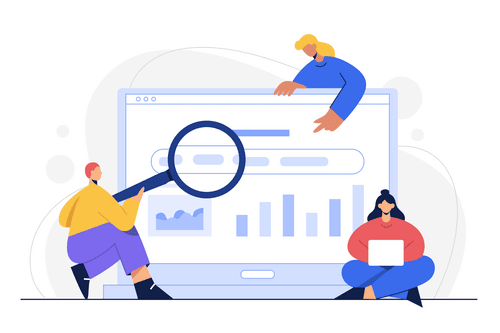
You won’t find such features readily available. Hence, you’ll need to get help from WooCommerce developers to do it for you.
Make sure the search box is prominently placed, typically in the top right corner or center of the homepage. Visibility and accessibility are key.
Don’t forget to include filters to allow users to refine results based on criteria like date, category, or relevance. Useful for large databases.
Also, implement predictive text or auto-complete suggestions. As users type, relevant queries appear, speeding up the search process.
8. Automated Marketing Campaigns
AI in email marketing leverages machine learning algorithms to personalize content, optimize send times, and segment audiences. It enhances efficiency and effectiveness by automating tasks and delivering hyper-personalized experiences in real-time.
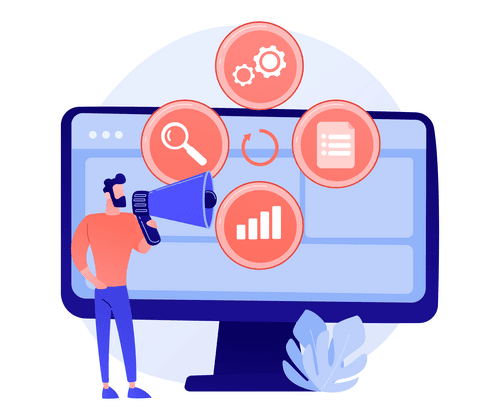
You can make use of AI to tailor email content based on customer behavior, preferences, and purchase history. Personalization boosts engagement and conversions.
Remember to set up automated marketing campaigns. They should trigger from user actions. Push notifications can nudge potential customers toward conversion.
Automate order-related emails, keeping customers informed about their purchases. This improves the user experience. It also builds trust.
9. Fraud Detection and Security
AI fraud detection employs machine learning to identify fraudulent activities within large datasets. By training algorithms to recognize patterns and anomalies, it proactively detects potential fraud.
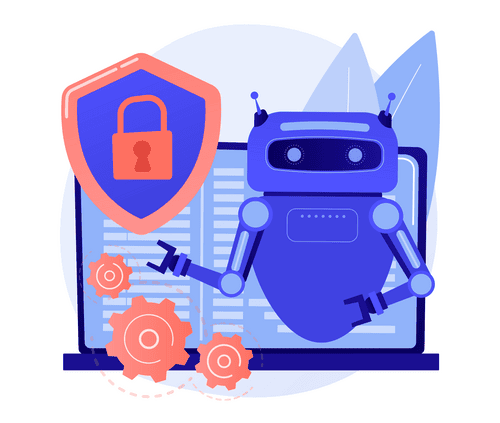
AI algorithms analyze transaction data, user behavior, and historical patterns to calculate an Order Risk Score for each order. This score represents the chance of fraud.
Based on the risk score, you can automate actions like canceling high-risk orders, placing suspected orders on hold, or notifying administrators via email.
Conclusion
Integrating AI into your WooCommerce site offers a powerful way to enhance user experience and significantly boost conversion rates.
In this blog, we talked about how AI-enhanced search functionality and automated marketing campaigns can further optimize your site’s performance.
As the e-commerce landscape continues to evolve, adopting AI strategies will not only help you stay competitive but also drive sustained growth and customer satisfaction.





